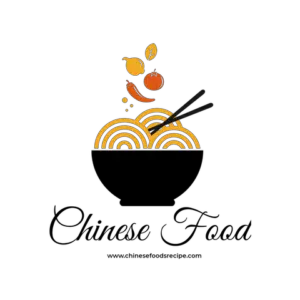2016 Chinese Holidays and
their celebration tradition
As 2015 approaches its end, everyone is excited to welcome 2016. A lot of planning and self-reflection is happening. What is the goal for 2016? Which countries do I want to visit? Which skills should I focus on improving and how? What is my plan to keep healthy? Or simply what authentic Chinese food recipe do I want to learn? … The list goes on and on. For me personally, I want to know when the holiday comes so I can plan ahead for a family reunion. If visiting China on a holiday vacation is your plan for next year, this post may help you understand a little bit about when these Chinese holidays are and the traditions behind them.
- New Year’s Eve (January 1-3)
 People from all over the world celebrate New Year’s Eve, including Chinese. This is a special occasion to do many meaningful things after a year’s hard work. Friends and family members go to a restaurant or cook some authentic Chinese dishes together at home. Nowadays, younger generations like to plan some outdoor activities as well, such as travelling, skiing, or backpacking. It is a good way to release stress and be close to each other.
People from all over the world celebrate New Year’s Eve, including Chinese. This is a special occasion to do many meaningful things after a year’s hard work. Friends and family members go to a restaurant or cook some authentic Chinese dishes together at home. Nowadays, younger generations like to plan some outdoor activities as well, such as travelling, skiing, or backpacking. It is a good way to release stress and be close to each other.
But this holiday is not all about relaxing. Hard work still continues, in a different way though. Because the Chinese Spring Festival is coming soon, usually on February, some people like to take advantage of this three-day holiday to do some house cleaning. Of course, shopping is another important part. The holiday season presents great opportunities for people to show appreciation to their loved ones.
New year’s Day represents a new life in Chinese culture, so it is very suitable for a wedding day. Be prepared to give some red envelopes, because you are most likely to attend at least one wedding during this holiday. After a tiring day hanging out with friends, this is always my favorite part—watching the Countdown Party on TV. I like to have a cup of tea and a few snacks with my family while watching the programs.
- Chinese Spring Festival (February 7-13)

In additional to a thorough house-cleaning project, people don’t forget to buy some new clothes for themselves and their family members. It’s also a good time for hair salons because most people are likely to try some new hairstyles or simply do a nice haircut.
Chinese people also put a lot of efforts in decorating the home. The recommended decorations are in red, as red is the festive color in Chinese culture, representing luck.
New Year’s Eve dinner is the highlight of this holiday. The entire family sits around a table and turn on the TV to watch Chinese Spring Festival TV Programs. Traditional Chinese dishes include orange flatfish, moo goo gai pan, egg fried rice, pan fried noodles and desserts.
- Tomb Sweeping Day (April 2-4)
The Tomb Sweeping Festival was originated from the ancient emperors “Muji” ceremony. In addition to tomb sweeping, people also take some physical exercise, such as hiking, picnics and so on. Since ancient times, Chinese people have the tradition of planting trees on Tomb Sweeping Day. In 1979, the National Committee in China designated March 12th as Chinese Arbor Day. This is a good cause, but I honestly still don’t understand how tomb sweeping is related to tree planting.
This is not a Chinese exclusive holiday, but different countries celebrate this holiday at different times of the year. On May 1,1886, more than 216,000 workers protested for the implementation of eight hour working system and held a big strike. Through hard struggle, they finally won. In order to commemorate the great labor movement, in 1889, the Second International Committee announced the May 1st as International Labor Day. Nowadays, this holiday becomes one of China’s peak tourism seasons for domestic and international travelling.
- The Dragon Boat Festival (June 9-11)
Celebrating the Dragon Boat Festival includes many activities. The main one is the dragon boat race. According to a legend originated in the ancient state of Chu, a sage minister named Qu Yuan drowned himself in a river. People love him so much that they rowed on the river to find him. Unfortunately, there was nowhere to find Qu Yuan. People set the date of May 5th (according to the Chinese traditional calendar) as The Dragon Boat Festival in memory of Qu Yuan. The purpose of dragon boat race is to disperse the fish in the river so they won’t eat Qu Yuan’s body. What a loving but sad story!
- The Mid Autumn Festival (September 15-17)
The Mid Autumn Festival is also called “The Harvest Festival”, as people sow in spring and harvest in autumn. Ancient Chinese people drink china liquor and dance to celebrate the harvest. During this festival, one of the most important activities is to watch the full moon and eat moon cakes.
People’s Republic of China was founded on October 1st, 1949. From 1960 to 1970, grand rallies and mass demonstrations were held in Tiananmen Square annually on this day. In 1984, on the 35th anniversary of the National Day, a Grand National Day Parade was held. This year, the Parade becomes especially important, as 2015 is the 70th anniversary of the victory of World War II.
If you are planning a holiday trip to Beijing, you probably should avoid going this week since traffic is restricted and most tourism attractions are extremely crowded.





